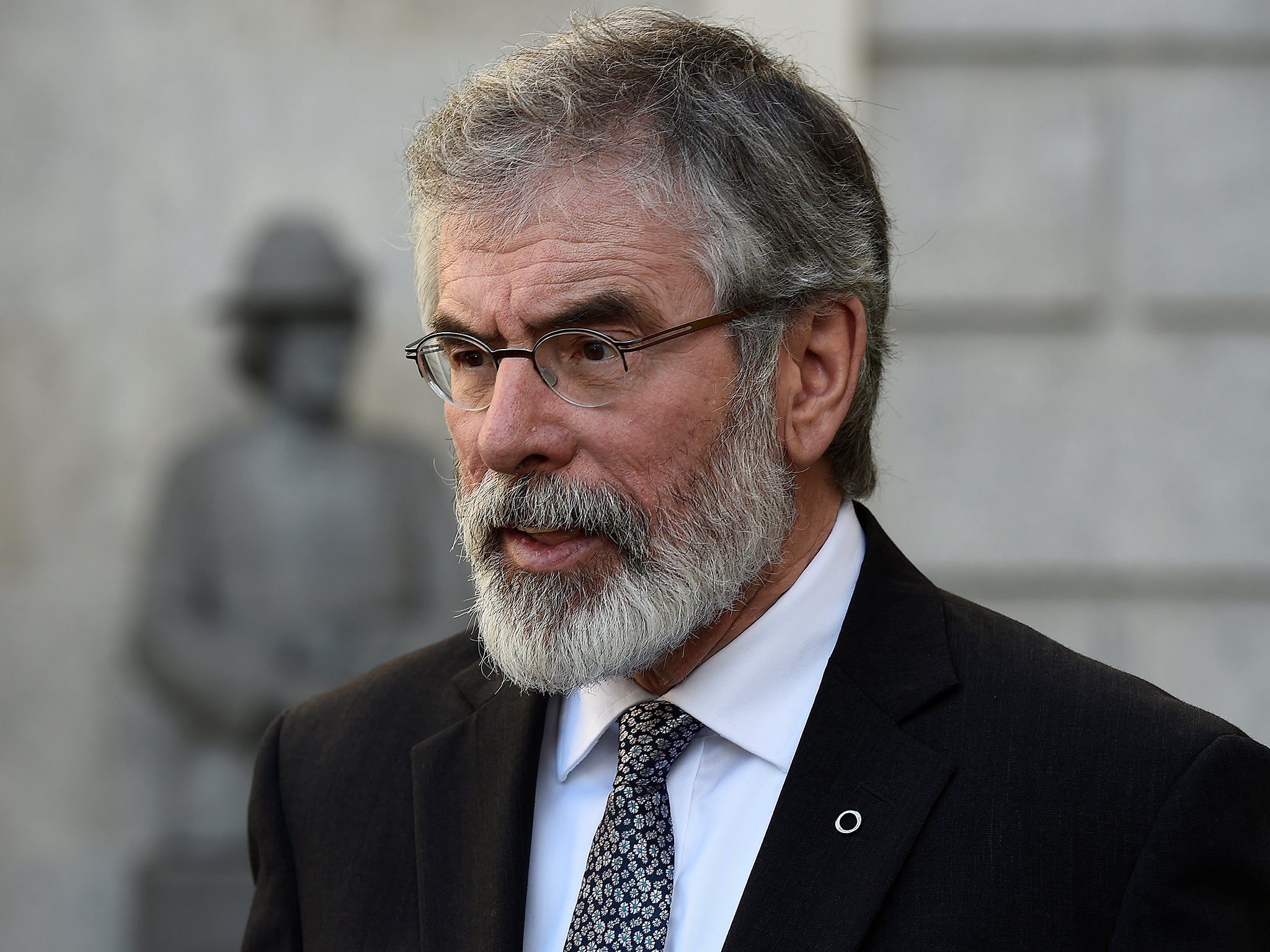Gerry Adams will seek re-election as Sinn Fein president in November before revealing his plans to step down
After three decades leading Sinn Fein, Mr Adams said there were now plans for a 'succession'

Sinn Fein president Gerry Adams will stand for re-election as Party president in November, but if re-elected he has said he will announce plans for handing power within the party its “next generation” .
Mr Adams has led the Irish republican party in Northern Ireland for more than thirty years, and has previously indicated that he wished to remain in charge for the next general election in the Republic of Ireland.
But on Tuesday morning he announced plans for an "orderly leadership change."
"This has been the focus of much internal discussion for the last year," Mr Adams said.
"It is about preparing the party for the next ten years and to ensure that we are better able to achieve our strategic objectives."
Mr Adams said a referendum on Irish reunification was achievable in Northern Ireland within the next four to five years, but so far his party and the Democratic Unionist Party have been unable to form an executive at Stormont after elections earlier this year which, for the first time, left Republican parties with more seats than Unionist.
Sinn Fein's deputy president, Mary Lou McDonald, has made no secret of her desire to succeed Mr Adams - a scenario that would give the party female leaders on both sides of the border.
Mr Adams also said the UK Government's Brexit position papers with regard to Northern Ireland, which involve leaving the customs union, would cost jobs, and undermine the economies in the Republic and Northern Ireland.
"It is also time for the Irish government to accept that the best protection for the island of Ireland in any post Brexit arrangement is for the North to be designated special status within the EU," he said.
Subscribe to Independent Premium to bookmark this article
Want to bookmark your favourite articles and stories to read or reference later? Start your Independent Premium subscription today.

Join our commenting forum
Join thought-provoking conversations, follow other Independent readers and see their replies